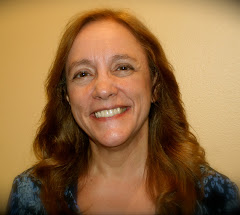Whenever a book, article, poem, drama, song, database, or illustration comes into the world in tangible form, it is automatically covered by copyright, regardless of whether the work is published or registered with the copyright office.
Copyright means that the author has a "limited-duration monopoly" on anything he or she creates. You cannot use another person’s material (or any portion thereof) publicly without the copyright owner's permission, which may require that you pay royalties.
When signing a contract with a publisher, the author guarantees that the work is original and that no part of it has been previously published. If any portion has already appeared in print, written permission to reprint it must be secured from the copyright owner of the other publication. Notice of the original copyright and permission to reprint should be noted on the copyright page of the book, in a footnote on the page where the material is quoted, or in a bibliography.
It is the author's responsibility to obtain permission to quote copyrighted material. Most publishing agreements stipulate that any fees to be paid will be the author's responsibility. Authors are expected to send to the publisher all permissions that have been received; these permissions will be filed with the publishing contract.
UNITED STATES COPYRIGHT LAW
To determine whether a work published in the United States is still in copyright, look for the year of publication in the copyright notice. "Terms for Copyright Protection," a U.S. government publication, summarizes the current duration of copyright protection for published works as follows:
• Works created after 1/1/1978: life of the longest surviving author plus 70 years. (Earliest possible Public Domain date is 1/1/2048.)
• Works registered before 1/1/1978: 95 years from the date copyright was secured.
• Works registered before 1/1/1923: Copyright protection for 75 years has expired. These works are in the public domain.
MUSIC
Music and lyrics written by an American author and published in 1922 or earlier are in the Public Domain in the United States. When doing public domain research, you must separately consider the Public Domain status of the music (the melody or the rhythmical sequence of single notes), the lyrics (words that are sung with the music), and the arrangement (specific harmony notes played with the melody). Most often sheet music has a copyright date that includes all three. But in many instances the music is in the public domain, but the lyrics are copyright protected. (See www.pdinfo.com.)
If music or lyrics are under copyright protection you cannot legally:
• reproduce the music or lyrics
• distribute the music or lyrics either for free or for profit
• perform the music or lyrics in public
• play a recording of the music or lyrics in public
• make a derivative work or arrangement for public use in any form.
Subscribe to:
Post Comments (Atom)


Kathy, can words to a song which is still under copyright be used in part and footnoted? I have checked into a song I wanted to use, and it has two owners of the copyright. The 1/3 can be purchased fairly easily, but the 2/3s are harder and costly...so I wondered if I only used a couple lines if the same rules apply. Sarah Hampshire
ReplyDelete